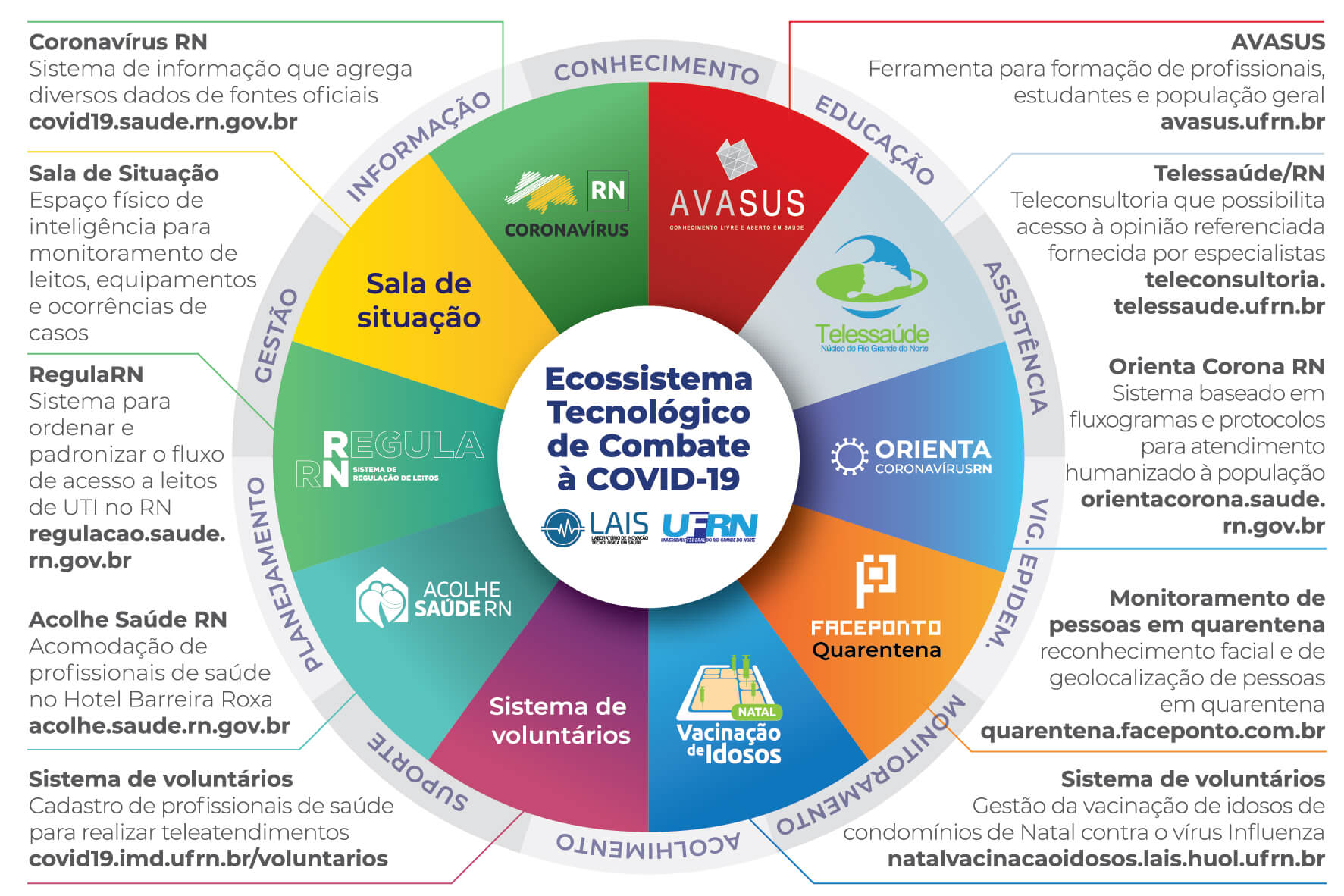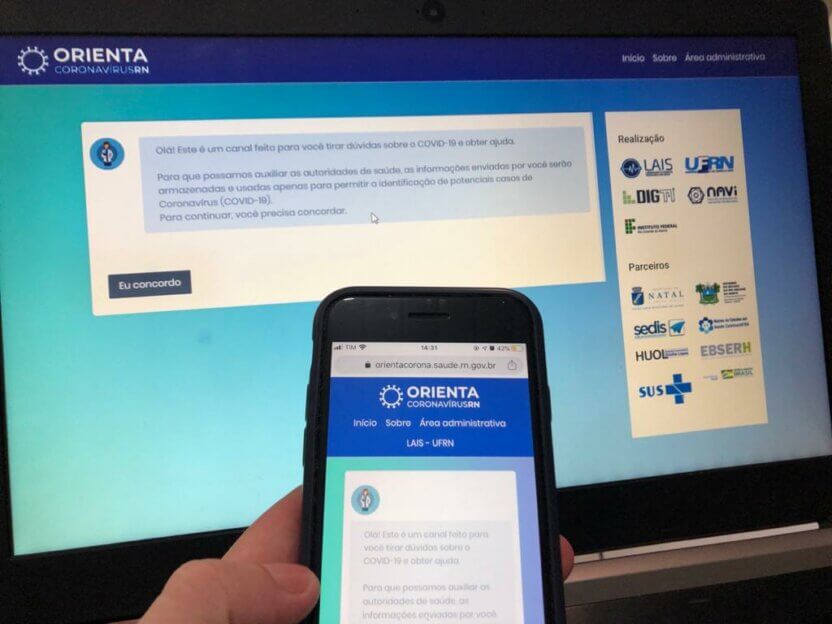Combining technology and information is always a positive action for the well-being of people. These two weapons are fundamental in any situation, let alone in the face of a current challenge such as facing the pandemic caused by the new coronavirus. Therefore, the contagion of contagion from Covid -19 is not only in the hands of public authorities and health professionals, as it is a joint responsibility of all sectors and the population.
Aware of this reality, the Laboratory of Technological Innovation in Health of the Federal University of Rio Grande do Norte (LAIS / UFRN), in partnership with the Directorate of Information Technology Management of the Federal Institute of Rio Grande do Norte (DIGTI / IFRN) , with the IFRN Advanced Technological Innovation Nucleus (NAVI), the UFRN Collective Health Studies Nucleus (NESC), the UFRN Envelhecer Institute and the Natal Municipal Health Secretariat (SMS) put all their research capacity and development to better serve the population. This is how LAIS Technological Ecosystem emerges to assist the State Secretary of Public Health of RN (SESAP / RN), formed by several information tools, with data and services that can be used by the population of Rio Grande do Norte.
The ecosystem creation initiative started in mid-March, during a meeting of the Committee for Confronting Public Health Emergencies, a group of experts formed by the State government, which includes Professor Ricardo Valentim, LAIS coordinator. The researcher Jailton Paiva, coordinator of the Center for Information and Communication Technology (CTIC) at LAIS, also participated in this meeting.
The creation of the technological ecosystem
Based on the needs listed by the group, a strategy was devised with innovative solutions to support actions aimed at facing and containing the damage caused by Covid-19 in order to stimulate effective work processes to combat the pandemic. “The Technological Ecosystem thus emerges, composed of a set of information systems to assist in the organization, planning, monitoring and management of actions to combat the pandemic caused by the new coronavirus”, explained Jailton. All the work carried out by the LAIS team of researchers was directed towards the implementation of this technological ecosystem, with the goal of strengthening innovative actions, enhancing the integration between primary care and health surveillance.
Altogether, 11 tools integrate the ecosystem, forming a health care, education and information network for the population in general and for professionals who fight the coronavirus. The population will be able to follow the evolution of coronavirus cases in the state and its municipality, have access to content with guidelines for the prevention of the spread of the disease, have access to a network composed of doctors, psychologists and medical students who are ready to provide humanized assistance.
Health professionals, on the other hand, will have access to professional qualification courses related to Covid-19, as well as a network of specialist professionals who are ready to help them in the most diverse doubts.
The Technological Ecosystem is also a fundamental tool for health managers. Through the provision of information, it will allow the understanding of the situation of the organizational structure (breathing apparatus, ICU beds, workforce, etc.), the understanding of social isolation, the mapping of probable cases of coronavirus and the monitoring and integrated management epidemiological data.
According to Jailton Paiva, the data produced by the Ecosystem will be organized into indicators and made available in a situation room. “In this way, managers will have access to timely information in a timely manner for decision making, contributing to the planning of the implementation of actions and policies to face Covid-19”.
The researcher also points out that the Ecosystem will contribute to the reduction of the burden on health services, and consequently, the morbidity and mortality related to Covid-19 in RN. “This whole system will favor the improvement of the provision of health services, since the professionals who are on the front line are being qualified and updated with a focus on the disease”, concluded Jailton.
Learn more about the Technological Ecosystem for coping with Covid-19

Infographic: Ecosystem gathers several technology platforms for coping





